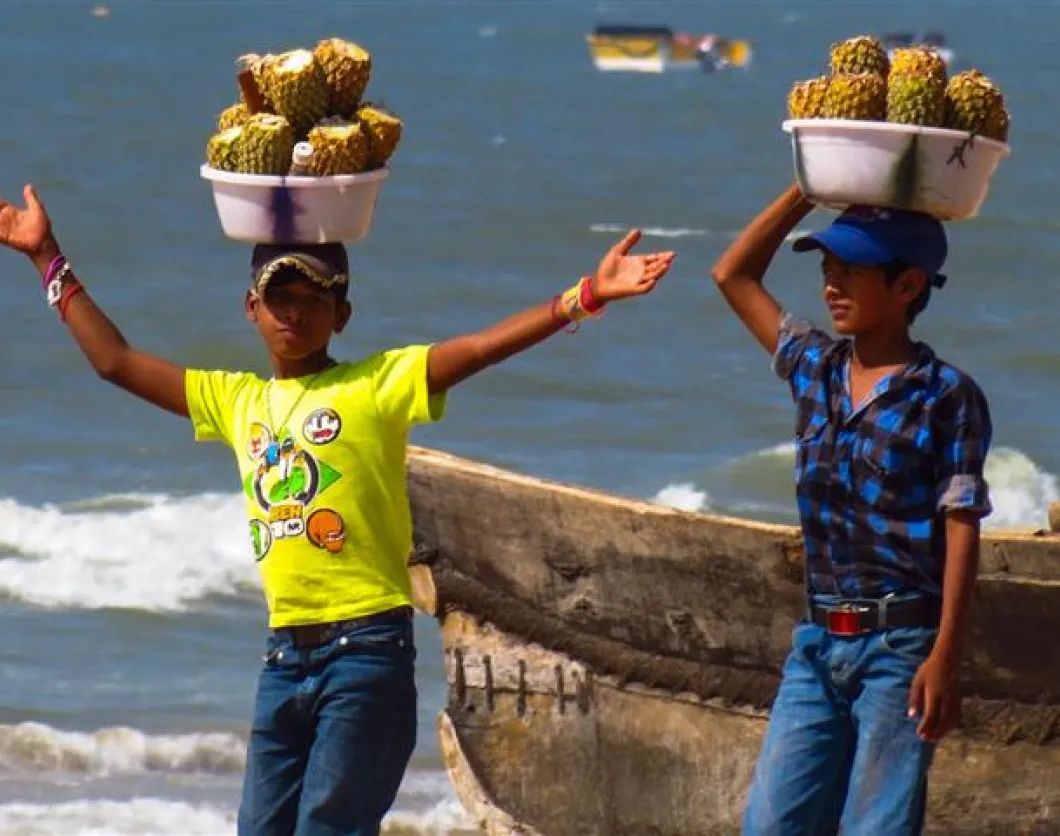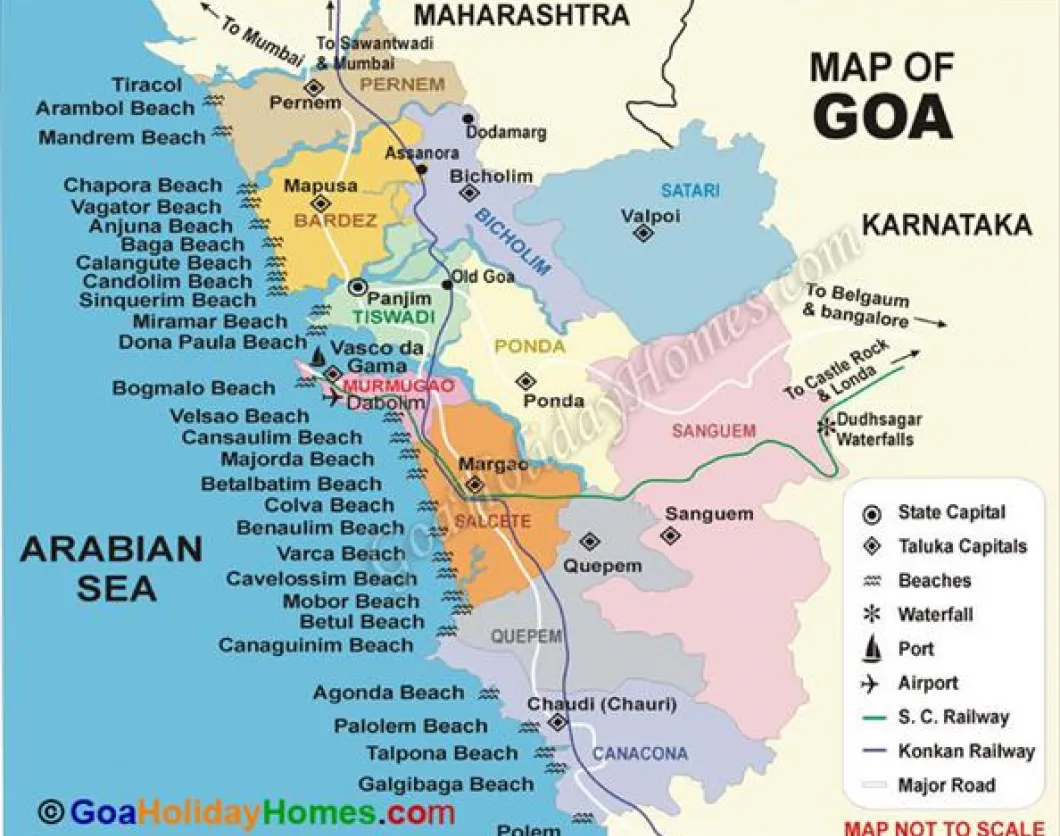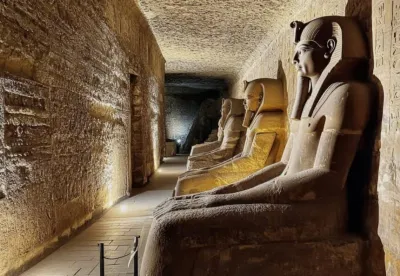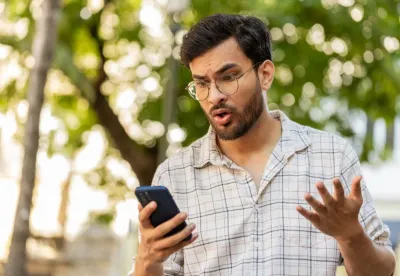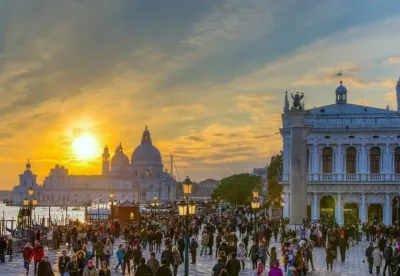Goa, a former Portuguese colony on the western coast of India (adjacent to the States of Maharashtra in the north and Karnataka to the south-east) is the smallest Indian state famous for its beaches and temples. Compared to the rest of India, Goa ranks high in human development index, per capita income, quality of life and infrastructure.
The effect of tourism, the third largest revenue earner, has been considerable. Tourism services have grown exponentially compared to mining and fishing leading to impoverishment of many already on the poverty line. In the 1970’s, Goa became famous as a destination for ‘hippies’ heralding the drug culture which infamously attracts many to experience this lifestyle even today.
Other fallouts have been child labor, trafficking and a notorious sex tourism industry. Like Thailand, Cambodia and Vietnam, Goa has an unsavory connection with sex tourism with the problem assuming alarming proportions.
Pedophiles have kick started a cottage industry of sexual abuse wherein poor parents, an uncaring society, a callous bureaucracy, corrupt police, an insensitive government and a lackadaisical law enforcement approach facilitate exploitation. Thailand as the tourism capital cracked down under pressure from international organizations. In India, the picture remains bleak.
As per the Children’s Rights in Goa (CRG), in 1996, a Mapusa based Non-Government Organization (NGO) stated that at any given point there are at least 100 pedophiles on the prowl. With rising demand in the peak season, children are trafficked from neighboring states and even abroad.
According to national and international child rights organizations, ‘A pedophile in Goa sexually exploits at least 20 children during his or her visit!’ Such is the magnitude of the problem needing to be addressed. Unskilled and uneducated migrants from Karnataka and Maharashtra are estimated at nearly 1/3rd of the population and they are growing very fast.
As parents take up casual/daily jobs, unsupervised children end up wandering and are vulnerable to sexual abuse, exploitation and child trafficking. An estimated 1,000 children selling handicrafts or edibles on beaches or working in temporary shacks and resorts in poverty/hunger are lured by sex tourists.
There also seems to be planned, institutionalized trade with children of poor families with agents paying parents about Rs. 500/month. The families prize material benefits to their child due to economic insecurity, family break downs, physical or mental illnesses, discrimination and consumerism. Pedophiles, whose modus operandi is to allure children by deceit and not coercion (with food, alcohol, toys, money, gifts, shelter, employment and holidays) convince parents of their child’s better life. Children are brainwashed to accept sexual intercourse as natural, fraudulently addicted to substance abuse or injected drugs for artificial erection.
Shack owners, taxi drivers or former victims of sex, abuse girls in brothels or handpick boys from streets. Most pedophiles are middle-aged males (females). Frequent travelers from USA, Europe and Australia establish sexual relationships with children through long-term residence or seek jobs where children can be easily employed for exploitation.
Although church officials, community organizations, NGO’s, and media have expressed concern on child sex tourism most pedophiles in Goa escape police or evade conviction due to legal loopholes and sheer neglect from the police. On rare occasion’s alleged sex tourists are acquitted.
With the police approaching the problem forthrightly, fears of loss in tourism revenues also exist.
The CRG is the first organization dedicated to preventing the abuse and exploitation of children in Goa. Run by volunteers its vision rests to make a society that guarantees the right to survival, development, protection and participation to all children with institutional mechanisms to ensure that these rights are safeguarded.
It advocates for socially responsible tourism; free of exploitative practices impacting children and developing a coordinated community response by mobilizing the Government, corporate, voluntary sector and the civil society in empowering children against exploitation.
Their STOP PAEDOPHILIA campaign (2000) has strengthened over time. The CRG assisted Goa Police in several child abuse cases of its Women and Child Protection Unit (2004). From 2006-2009, CRG ran a Child Protection Cell with a case coordinator, counselor and legal officer to serve as a rudimentary Victims’ Assistance Unit although absence of funds prevented it from sustaining the same and establishing one.
The CRG tackles child safety issues at different levels of the society. It runs Child Activity Centers and conducts sessions in schools to empower children on rights awareness and safety from abuse. Its six non-formal schools as educational and recreational centers provide opportunities for working children to achieve basic, functional literacy.
CRG’s comprehensive campaign uses different communication modes. Presentations and films during parent-teacher meetings generate awareness on unintentional forms of abuse by parents or teachers, prevention of abuse, dangers of unsupervised children, pedophilia, etc. Beach Nodal Centres identify vulnerable children and spot suspected offenders by monitoring tourists’ behavior on beaches.
CRG distributes handouts at airports, beaches, flea markets and posters in hotels and shacks. Its members attend meetings in villages, parishes, women’s and citizens' groups. For improving children’s lifestyles and incomes, livelihood skills, automobile repairs, jewelry making, tailoring, pottery and computers are delivered.
CRG works with the Child Welfare Committee in rehabilitating victims in Apna Ghar - the government home for children. CRG has facilitated in drafting a foster scheme with support from NGOs and professionals for submission to the government. Over time, it has received complaints on suspected cases of travelling sex offenders and abusers in the community.
As an Indian state, Goa adheres to all national laws but also has its own legislative process. The central government ratified the United Nations Convention on the Rights of the Child (1992) which requires the state to protect children from all forms of sexual abuse, exploitation and neglect (especially the girls and the disabled).
The Goa Children’s Act (Ju., 2003), the only comprehensive legislation for children in India was enacted under a proactive Secretary for Women and Child Development owing to increasing pressure from vigilant NGOs, lobbying by social activists and advocacy by civil groups as the Goa Bailancho Saad, Jan Ugahi, Arz, etc.
Under the Act, children staying with unrelated adults need to register with the Director, Women and Child Development and are not allowed entry into any hotel nor access prohibited Internet sites. They can only be placed in homes of non-relatives outside the state with the permission of the parent. The Act calls for registration, monitoring and evaluation of Children's Homes. It also prohibits child labor below 14 and asks for measures to prevent, rescue and rehabilitate victims of commercial sexual exploitation.
Goa is the only state with legislation recognizing child exploitation in tourism and its protection. During the nine years of its enactment, sadly, seven cases have convicted only two foreign offenders.
The time to get justice for children and for the government to implement its own laws hinders the fight for children’s rights. Child rights should be everybody’s concern and it should be the collective responsibility of all sections of the society to protect children and prevent abuse. The police, tourism department and the tourism trade must fulfill their tasks sensitive to the situation of any child they come across while on duty. Goa needs to reinvent its tourism industry by shifting from single tourists to families. In June 2006, the Travel and Tourism Association, Goa pledged to adopt and work towards a Child Friendly Tourist Code.
By Ilika Chakravarty
Academy of Business Management, Tourism and Research, Bangalore, India
63 Ferry Street, Horseshoe Crescent, London, E14 3DT, U.K.



